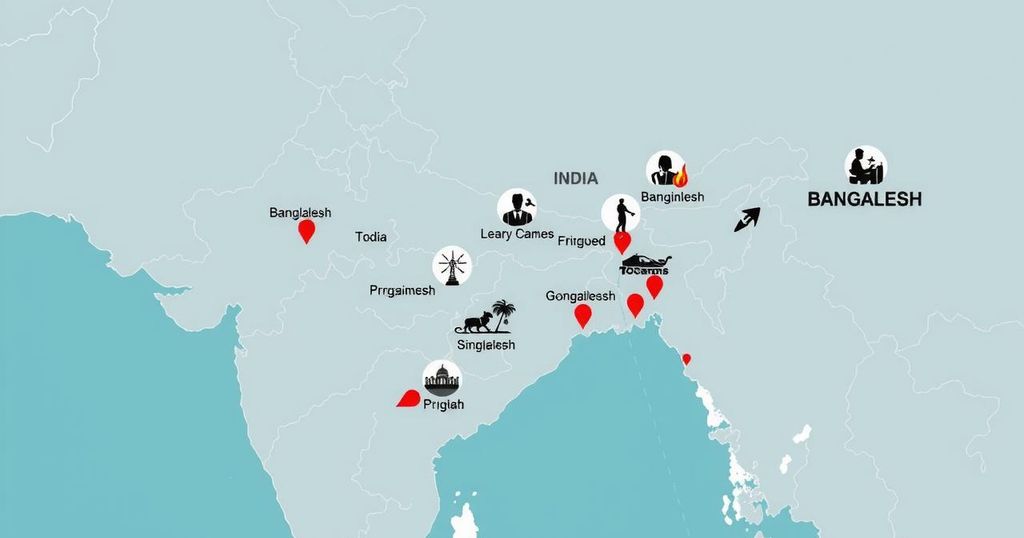India Faces Security Threats Amidst JMB Resurgence and Rohingya Crisis
An intelligence note warns India of escalating threats from the resurgence of radical groups like JMB in Bangladesh and worsening conditions in Rohingya refugee camps. The two issues pose socio-economic and security risks, exacerbating border vulnerabilities and potentially leading to internal unrest. Experts call for urgent intervention to stabilize the situation and counter these threats comprehensively.
An intelligence assessment highlights significant security threats to India arising from escalating issues in neighboring Bangladesh. Primary concerns involve the deteriorating situation in Rohingya refugee camps and the resurgence of radical groups, notably Jamaat-ul-Mujahideen Bangladesh (JMB), Al-Qaeda (AQ), and ISIS. These developments pose dire socio-economic and border security challenges, directly affecting India’s counter-terrorism efforts.
The intelligence report indicates that recent governmental changes in Bangladesh have allowed JMB and its affiliates to regain strength. Following the release of key terror operatives, splinter factions have aligned themselves with global terrorist organizations. Historical records link these groups to numerous high-profile attacks in Bangladesh and India, amplifying their threat level as they seek to target Indian interests.
The report further elaborates on the operational methodologies used by these groups within India. They tend to integrate into densely populated Bengali communities, working in various low-profile industries to facilitate their activities. While established funding connections to larger jihadist organizations have not been substantiated, their operational continuity is maintained through self-funding and local networks.
In tandem with the JMB threat, Indian agencies are also vigilant regarding the escalation of violence and instability in Rohingya refugee camps in Bangladesh. The grim living conditions have rendered these camps breeding grounds for radical elements. The potential for large-scale infiltration along India’s porous border raises alarms over internal security challenges throughout sensitive regions, particularly in Jammu and Kashmir.
The influx of Rohingya refugees may exacerbate existing issues within India, leading to heightened administrative pressures and possible communal tensions. Illegal immigration and increased trafficking are anticipated as desperate individuals seek refuge, presenting challenges for the country’s border security and regional stability.
The ongoing crisis in Bangladesh, fueled by the massive refugee burden, could further destabilize the region and adversely affect India’s economic conditions. Experts advocate for immediate action from the Bangladeshi government to control violence in refugee camps and curtail extremist threats, as inaction may culminate in escalating radicalization, illegal immigration, and broader regional instability.
In summary, India faces serious security risks stemming from the resurgence of radical groups like JMB in Bangladesh and the escalating Rohingya crisis. The combination of growing radicalization and increased illegal immigration could have significant ramifications for India’s internal security. Addressing these threats requires urgent measures from both the Bangladeshi government and Indian authorities to mitigate the potential spillover effects of these complex challenges.
Original Source: www.news18.com








Post Comment